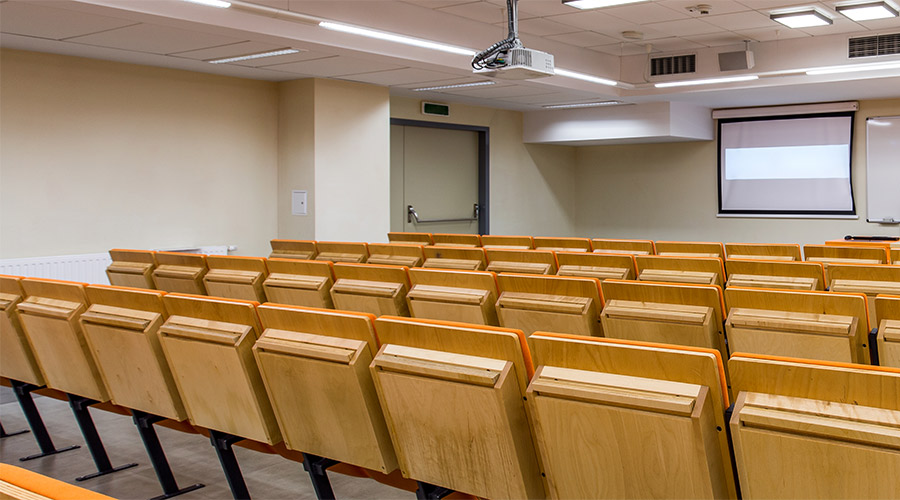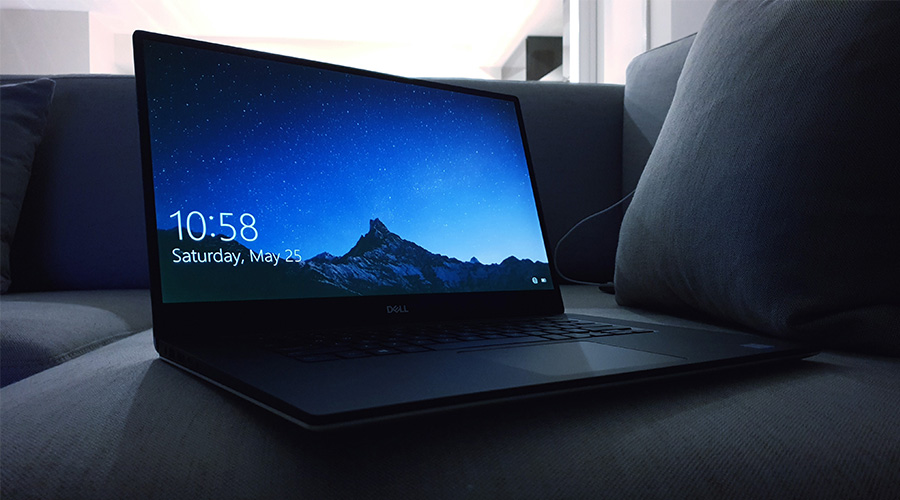The lifestyle of a student is often action packed, filled with loads of assignments, socialising, on-campus events and after hours activities. So, it’s important to structure your costs and create a budget in order to know the foundation you’re building for monthly food, rent, and utility costs. Whether you’re living in a university residence or private accommodation, it can save you money, a lot of stress and provide you with more time to focus on your modules and after-hours plans.
Accommodation
On-campus
Student residences typically offer different fees depending on what you require from your on-campus living.
As a first year student you’ll be staying in a First Tier residence which is for those studying undergraduate degrees, whereas second and third tier residences are for senior undergraduates and those studying postgraduate degrees.
Some universities include meal plans in their structure of their accommodation fees, while others offer additional packages for your weekly grub. As a new student, you’ll be asked to pick between a few plans that we’ll cover below and if you’re heading for UCT to start your undergraduate degree, you’ll be allocated a place in a first tier residence.
The typical accommodation fee in a first tier residence at UCT is around R56 000 – R62 000 per annum, excluding the kind of meal plan you may require. Whereas Rhodes accommodation prices range from R60 000 – R63 000 per annum and Stellenbosch offers a shared double room for around R38 000 and a single room setup for R47 000 per annum.
At UCT if you’re looking for 3 meals a day, 7 days a week, it’ll set you back R23 400, while if you plan on sorting out your own meals on the weekend, 3 meals a day for 5 days will cost you R17 700 a year, which works out to around R1,475 per month. There are also breakfast and dinner options, as well as lunch and dinner options which are in the region of R15000-R18000 on a seven days per week basis (for UCT).
Stellenbosch offers a straight 3 meals a day for 7 days a week and this plan will cost between R16 000 to R19 000 depending on your residence and meal provider, while Rhodes includes their meal plan costs into their accommodation fee.
However, if you’re living out of a residence setup your accommodation expenses and structure will be completely different.

Off-campus
Private accommodation such as living in a student digs or facilities designed for students will involve added tariffs for rent, WiFi, electricity, and transport, whereas in residence, these costs are often included in fees.
Nest, for example, offers students shared apartment setups starting at R6 350 per month, roughly R76 200 per annum, to R6 550 per month, around R78 600 per annum. This cost structure allows for certain added benefits – you’re provided with 24/7 security, water, WiFi, a rooftop gym and common areas for kicking back and relaxing. However, transport costs would need to be factored into the equation unlike living on campus.
Living at home
Having the option to live at home is a great money-saver, if you’re able to sacrifice more independence that’s associated with living on-campus or in private accommodation.
Living at home means that you’ll still be around your family and enjoy the luxuries of free meals, laundry, internet, electricity, water and of course your own rent-free room. So, for many students, this is the best option to study and save at the same time.
One of the only aspects you’ll need to keep in mind is the availability of transport to get to your classes. Whether you’re lucky enough to have your own car, or if your parents or older siblings are able to drop you off on campus during the week.
For an in-depth look into your options and expected lifestyle for different types of student accommodation, check out our article outlining the differences between student digs, on-campus residences and private accommodation.

Tuition
Whether you’re planning on studying a Bachelor of Arts (BA), Bachelor of Science (BSc), Bachelor of Commerce (BCom), Bachelor of Laws (LLB) or a number of other degrees, it’s important to understand the cost of just your studies, before factoring in your living expenses.
UCT’s BA degree cost R56 320 in 2019 while their BCom set students back R68 135, and their BSc programmes were priced at R62 186 per annum. Applications are obviously necessary and charged at a R100 fee for students with South African citizenship, whereas international students or students outside of the South African Development Community (SADC) are charged higher fees for their applications.
Stellenbosch followed with a R42 664 price tag set for their BA degrees, R45 000 for their BCom degree and R51 000 for their BSc programmes. Rhodes prices their undergraduate degrees between R33 000 and R59 000 depending on what you select to study.
These are high costs that have an important impact on your yearly spend. If you’re studying privately at colleges like Varsity college, Vega or AFDA, your fees will be significantly higher and in the range of R72 000 – R90 000 for a BCom, BA, BEd or LLB.

Textbooks
Similar to high school, your college or university will require you to purchase textbooks that form part of their curriculum for the modules you study. University textbooks can be expensive and range from R500 to upwards of R1 000 if they are purchased new.
Your best bet for getting your textbooks is second hand groups in which students may offer their highlighted books and notes for purchase once they’ve graduated or finished a specific year of study.
Often these groups are open and can be found on Facebook or they’re private and created in relation to your university or course. Second hand books are also prominent on sites like Gumtree, which could be worth a look.
If you’re looking for another way to save some cash, try finding some of your textbooks online. It can take some searching, but often the PDF version is a lot cheaper than the R1 000+ hardcopy textbook and can be a major score!
An idea might also be to ask your admin department to keep an eye/ear out to see if there are any students in the years above that are willing to hand down their textbooks for a fee. This is great as you’ll likely come across extra notes and explanations that can help while you’re studying.

Laptops
A laptop will be a vital component for your course work too. However, this doesn’t mean you have to shell out over R20 000 for the newest Macbook that’s the latest in popular trends. This is largely unnecessary unless you’re a design student and a laptop in the region of R8 000 to R12,000 would likely be completely suitable to the needs of most college students.
It’s also a wise idea to get your hands on an external hard drive or backup your important documents to a cloud service. We’ve all had computers crash and been left without the work we spent countless hours on, and you don’t want to be in this position while working on detailed assignments or thesis.
Although this may be a high price, this piece of technology is something that will need to last the duration of your course and potentially into your first year of work until you can afford a replacement with your savings.
So, make sure to get something with enough space, that’s not too far down the line in terms of speed and processing and has a bit of durability. Your notebook will likely be carried across campus in your bag, jumping around with the odd knock against a doorframe, so something slightly sturdy will be a better fit to survive 3-5 years of a university lifestyle.

Transport
Getting to and from your classes is a unique challenge for every student. For some, it involves having a car on hand and having parking available within their accommodation setup. For others, public transport and making use of the train, MyCiti busses and the Jammie Shuttle are the way to go.
Starting off, the Jammie is free to UCT students, so if the University of Cape Town is where you plan to spend your time studying, try to make sure there’s a Jammie stop close enough to where you’re living.
If you’re looking to park at UCT you will need to apply and pay for a parking disc. The price ranges from R1 000-R2 000 depending on the placement and type of bay. Unmarked bays are cheaper, while placements in Obz Square Bays and Smuts/Fuller Bays are more expensive.
MyCiti busses are also useful and fairly cost effective on a monthly basis. Tickets totalling a month of travelling can set you back between R350-R500 with stops starting in central Cape Town that span into Salt River and Woodstock.
Some universities might require you to travel a bit further, and Metrorail trains are also a viable way to get you across or out of the city quickly. They work on kilometre ranges and are priced on a single, weekly, or monthly ticket basis. So, if you’re studying at University of The Western Cape (UWC) in Bellville, you may be looking at R150-R300 per month depending on whether you choose the MetroPlus or regular Metro service.
Nest is a private accommodation option that is incredibly well-positioned to the transport routes mentioned. It’s right across the road from a Jammie stop for UCT students and is close to universities like Damelin and Varsity college as well as the Mowbray train station for longer commutes.

Meals & Groceries
One of the most vital components for living as a student is your meals. Living on a budget is never easy but knowing the cost of your staple groceries (such as milk, eggs, and bread) is a good start to gaining insight into what a month’s expenditure on food might be. Checking out our article on Sneaky Ways to Save Money as Student would provide you with some nifty tips to save up some extra cash too.
Also, having an idea of the kinds of meals you might make at home, and their ingredients, is a great way to understand how you might devise a plan for cooking and clubbing together for groceries with housemates. This of course depends on whether you’re living alone or with roommates or friends.
Residences, however, offer meal plans on a Monday to Friday, and Monday to Sunday basis, so if you’ve decided on this option, you may only need pocket money for drinks and a 2-for-1 special on the weekend with friends. At UCT if you’re looking for 3 meals a day, 7 days a week, it’ll set you back R23 400, while if you plan on sorting out your own meals on the weekend, 3 meals a day for 5 days will cost you R17 700 a year, which works out to around R1,475 per month. There are also breakfast and dinner options, as well as lunch and dinner options which are in the region of R15000-R18000 on a seven days per week basis (for UCT).
Stellenbosch offers a straight 3 meals a day for 7 days a week and this plan will cost between R16 000 to R19 000 depending on your residence and meal provider, while Rhodes includes their meal plan costs into their accommodation fee.
But, if you’re living off-campus and need to cater for yourself, then it’s a good thing to keep some of these prices in mind:
- Milk (1L): R13.82
- Eggs (12): R27.66
- Bread (white bread): R12.95
- Chicken Breasts (1kg): R70+-
- Rice 1kg: R20.25
- Pasta(spaghetti 500g): R12
- Cheese: R98.55 (local)
- Lettuce (0.5kg): R14.33
- Beef: 1kg: R94
- Potatoes (1kg): R16.13
The average price of a meal at a restaurant in Cape Town, sits around the R120 mark and you can expect to pay around R25-R30 for your morning cup-of-jo, if it’s at your local coffee shop.

WiFi
Residences usually offer internet free of charge to students under the conditions that it is not used excessively or for heavy downloading. At present, there isn’t an explicitly stated “cap” for usage at some universities, but your use of bandwidth at UCT for example, will be monitored to see that you are sticking to their guidelines.
Student and private accommodation is usually far different. Student accommodation facilities generally offer a capped high speed WiFi package that is included within your monthly rent and can be upgraded to support your internet usage patterns. Nest, for example, provides students with 15 gigabytes (GB) of speedy WiFi per month which can be upgraded to uncapped with a yearly fee.
Private accommodation, may require you to foot the bill and install fibre into your student digs or flat at your own cost. Typically, installing fibre into a house or apartment can cost between R1 600 to R2 000. This could be a necessary expense, that when split amongst housemates may be more affordable, but if you’re planning to live alone this bill could be harsh on the wallet.
Similarly, your monthly premiums for fibre will usually range from R499 to R650 for a 10mb line package (10mbps download, 2/10mbps upload) whereas a line offering download speeds up to 20mbps may cost you between R750 to R800 per month from providers such as Vumatel, MWEB and Vox.

Entertainment
Your entertainment spend is probably one of the areas you’ll need to budget for most effectively, or things can get out of hand. You’ll be meeting plenty of new people and wanting to explore Cape Town to get up to a bunch of exciting activities.
Whether it’s watching a movie, going for dinner or drinks or a round of putt-putt on the beach-side, it’s important to know the damage your wallet/balance might be in for. Not to mention saving for weekend getaways such as music festivals, if that’s your thing.
Typically, a movie ticket costs around R85 per person and you can add R80-R100 for a popcorn combo with some sweets if you’re feeling like a snack with your screening.
Whereas if you’re looking for something to do outdoors that’s fun, low cost and a bit silly, putt-putt on the beach will only set you back R20.
As for festivals, Cape Town has plenty to offer. From Rocking the Daisies to Up the Creek, loads of live bands and acts tour the city and the experiences you can have at these events are spectacular! But it does come at a price..
Rocking the Daisies prices range from R645 to R995 for Phase 1 to Phase 3 tickets. Whereas, Up The Creek features an even higher fee for early bird tickets, R850, with Phase 1 tickets retailing at R1 140 per person.
To experience live music you don’t have to go all in and spend a weekend away at a festival. Instead, you could also enjoy a Kirstenbosch summer concert for R150-R200 and find one of your favourite bands that’s been scheduled to play on your weekend off – which is far more affordable. Bars and clubs in central Cape Town may have some local and international acts for events, so keep up-to-date with Facebook event’s pages and stories from your favourite artists.
Either way, these prices are worth keeping in mind as you save towards your choice of entertainment with friends, as knowing a hefty price tag is coming months in advance for your favourite festival is coming can make organising your expenses far more manageable.
Creating a budget is the best way to understand your monthly spend, and if you’re planning on living and studying in Cape Town, then here’s an idea of how you might go about structuring your own approach to keeping track of your expenses.

Budget
Start by outlining your income, or available funds, versus your costs.
Costs can be fixed and variable. Fixed costs refer to expenses that do not fluctuate on a monthly basis, whereas variable costs can change from month-to-month and are generally comprised of non-essential expenses.:
So, fixed costs would be:
- Rent
- Electricity
- Water
- Tuition fees
- Groceries
- Transport
While variable costs might be..
- Seeing a movie a few times a month
- Spending money on new clothes and shoes
- Eating out and drinks with friends
- Concerts or other entertainment
Although tariffs for electricity and water can change on a month-to-month basis, you’ll have a pretty good idea of price you’ll pay for a month’s worth of electricity or water and can estimate it as a consistent fixed cost using this approach.
Set out a spreadsheet with your costs and total income. We’ll orientate our example towards a student looking to study at UCT and live in Nest’s student accommodation.
| BUDGET | |||
| Fixed costs | Variable costs | ||
| Item | MONTHLY | Item | MONTHLY |
| Rent | R6 350 – R6 750 | Eating-out
R120 per meal in restaurant(average) |
R800
(About 6 meal orders) |
| Groceries | R3 000 (about R100 a day for three meals prepared at home) | Movies
(with snacks)(for around 3 visits a month) |
R500 |
| Transport (to university)(UCT) | Free (Jammie) | Concerts/festivals
(2 Kirstenbosch Summer time Concerts) |
R300 |
| Internet (up to 10GB usage p/m) |
Included | Clothes
(depending on what you’re buying, how many items and the frequency – this will vary) |
R1500 |
| Medical insurance (for a basic student plan) | R500+- | Uber | R400 |
| Tuition(BA degree)
Annual R56 320 |
R4 700+- | ||
| Water | Included with Nest | ||
| Electricity | R500 | ||
| Fixed cost total:R15 350 | Variable cost Total:R3 100 | ||
| Overall Monthly Total: R 18 450 | |||
This is just an example of how you could go about organising your expenses and understanding the impact they will have on a monthly basis. Of course, some costs will vary and it’s about tailoring your budget as near to your potential needs while you’re studying, as possible.
In conclusion, the lifestyle of a student is expensive with loads of added costs that can vastly influence your yearly spend when living at university or in private accommodation. It can also be difficult to find a job that works within your workload to ease some of your extra expenses.
So, it’s great to have a budget to understand where you stand before the year begins by factoring in accommodation, tuition, meals, WiFi, electricity and what an average weekend with friends might cost you.
Take the stress away & start your student adventure

Nest takes the stress out of finding your own apartment and figuring out all the hidden expenses. It’s simple. We provide modern accommodation for students in Cape Town that’s close to the Jammie and major transport routes, whilst providing our residents with 10GB of high speed WiFi per month and water, included in the rental of your room.
We also have spectacular views of table mountain, a rooftop gym and lounge areas for relaxing in your free time and making friends with students taking part in courses at a variety of universities in Cape Town.
Contact us on 074 330 4222 or by emailing info@nest.co.za and arrange a viewing for one of our stunning student rooms!





